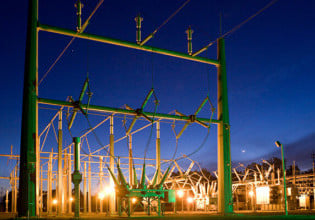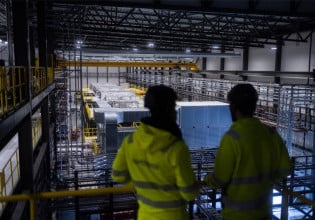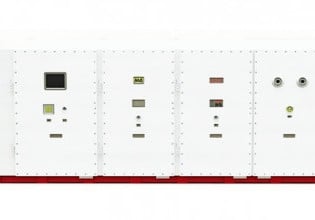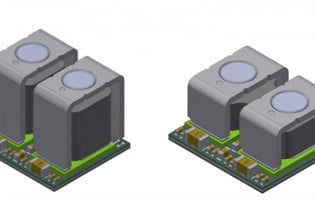Raytheon UK has been selected to provide power systems expertise as part of several major aerospace industry consortia which are currently developing the More Electric Aircraft (MEA) of the future. This marks the company's formal entry into the MEA market following Raytheon's significant investment in commercial aviation power solutions. Central to Raytheon's strategy is leveraging its unique HiTSiC (High Temperature Silicon Carbide) produced at its UK foundry, which excels at optimal power delivery in high-density, high-temperature power supplies.
Existing modules have a maximum operating temperature of around 150 degrees C due to the limitations of silicon devices. As a result, large, heavy liquid cooling systems are required. Raytheon’s HiTSiC can operate at temperatures of above 300 degrees C, allowing more compact modules and greater efficiency, which is well-suited for commercial aircraft, breaking away from the traditional tradeoffs while providing great value for money.
The company’s involvement spans the full range of power architecture and product collaborative initiatives under the Aerospace Growth Partnership which include: Power Off-take and Power Conversion for the More Electric Engine (SILOET II, Rolls-Royce), Electric Engine Start power delivery (POMOVAL, Labinal Power Systems), Motor Drive power delivery sub-systems (LAMPS, UTC), Dedicated HiTSiC Power Modules (R-PSM, Raytheon), and the Harsh Environment Health Monitoring Devices (HEEDS, AEC).
Steven Doran, Managing Director of Power and Control, Raytheon UK, commented: “Raytheon has a 25 year track record in electronic systems for harsh operating conditions where high current, power density, temperature and value are the key factors. The SWAP-V (Size, Weight, Power – Value) goal is being achieved through greater collaboration, with industry and academic experts in emerging technologies for harsh environments.â€
Earlier this year, Raytheon officially "opened for business" a new UK-leading SiC manufacturing "foundry" facility, developed through several years' research into advanced manufacturing processes and materials science. Raytheon's ability to process SiC utilizes high-temperature annealing and high-temperature/high-voltage ion implantation. The components provide unique properties in electronics: silicon carbide has the ability to operate at higher voltages and greater temperatures than pure silicon, and at a third of the weight and volume, improving operational performance and reducing system operating costs. Raytheon is the first company to have successfully tested silicon carbide circuit devices at temperatures up to 400 degrees C.
Bob Delorge, chief executive, Raytheon UK, said at the opening of the SiC fab: "Raytheon's investment in the foundry coupled with support from the Technology Strategy Board exceeds £3.5 million to date. This places the company at the start of a journey to exploit new global markets for this cost-efficient material, which is estimated to bring significant new business to Raytheon in Scotland in the coming years. As well as employing industry-leading engineers and scientists, we have made substantial commitments to develop new engineering talent to maintain our technological edge in high temperature silicon carbide. We are supporting Ph.D. students and undergraduates, and we are giving apprentices and young graduates the opportunity to develop their careers in this new and exciting arena of next-generation semiconductor technology.
"What was previously unachievable is now possible with silicon carbide," he added, "as it allows for smaller and lighter electronics to operate in harsh environments, and addresses a real customer need for significant energy efficiency savings in the manufacture of power switching and rectifying components (such as in ac-dc converters)."






